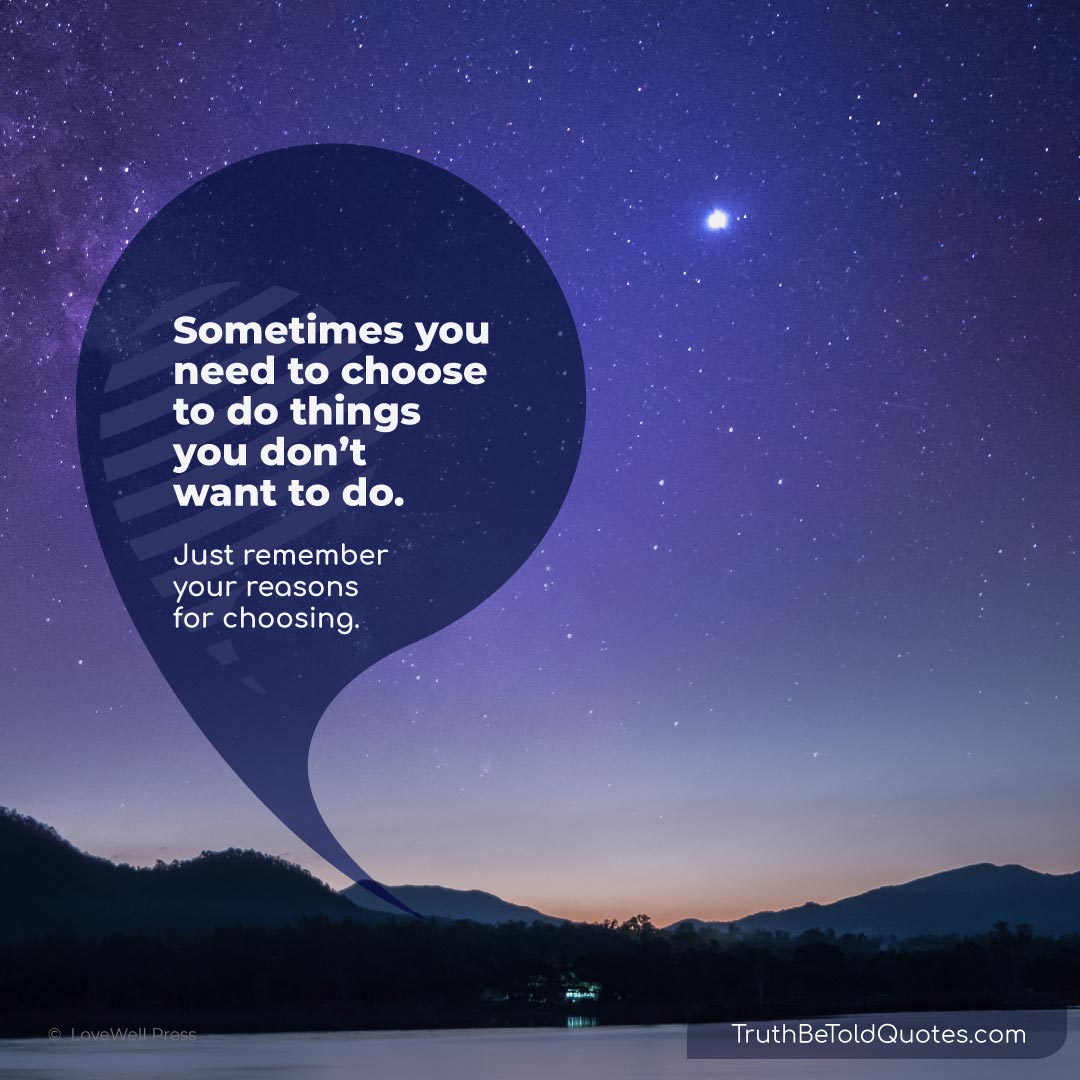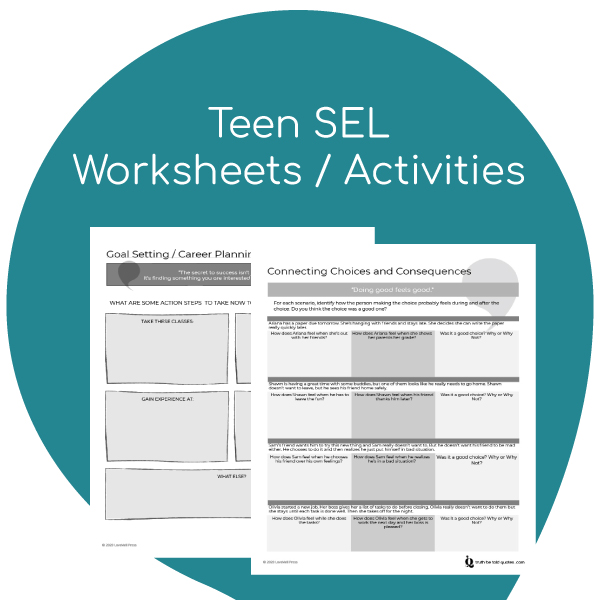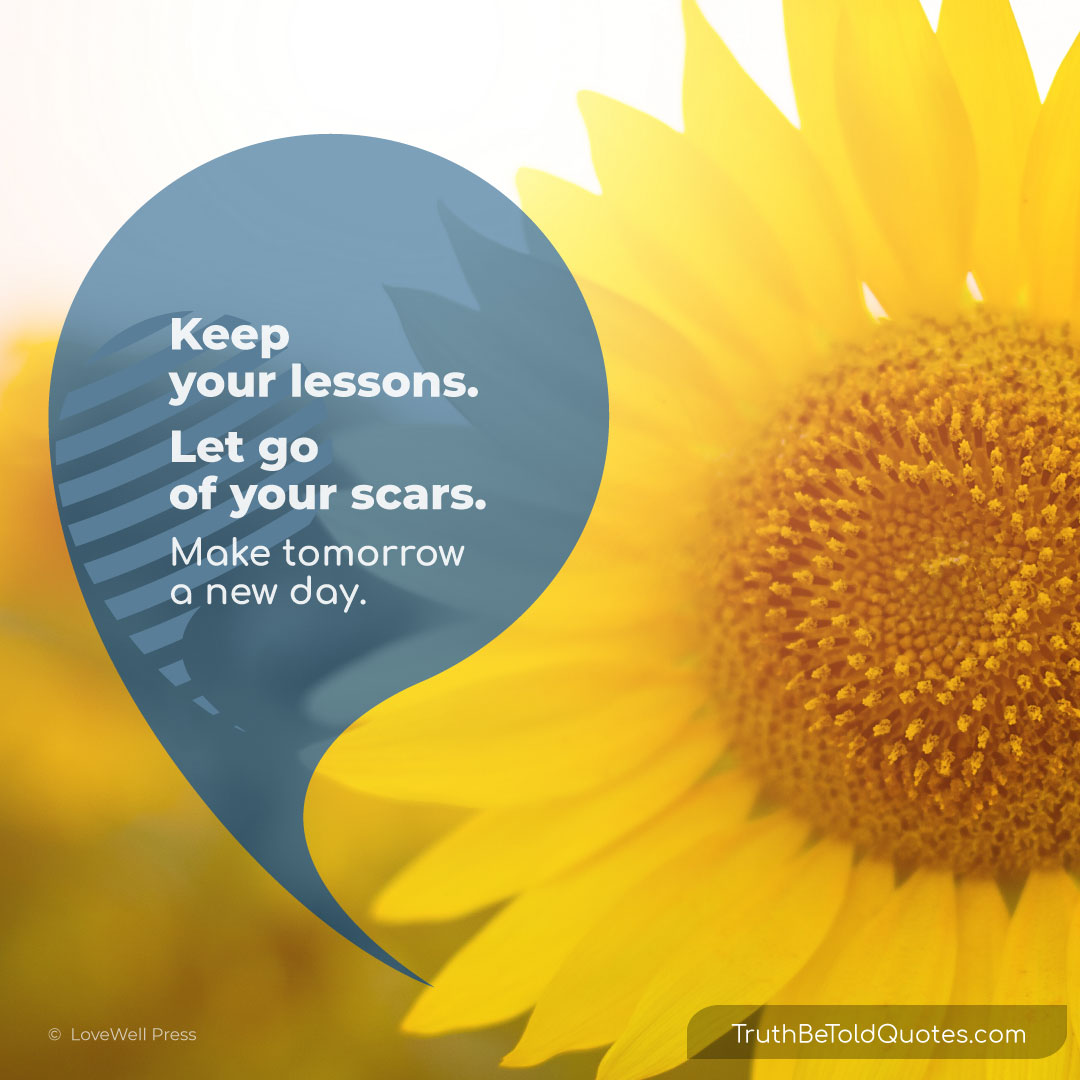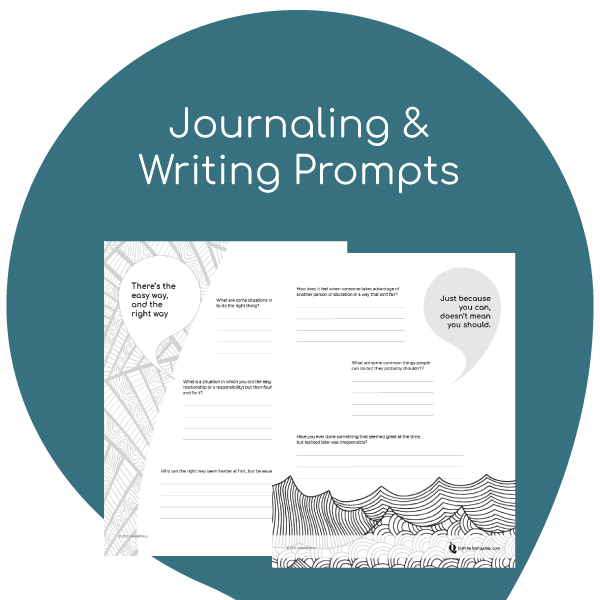
Quotes for teens on life lessons

"There's the easy way
and the right way."
-- Anonymous
It’s easy to hear what you want to hear. It’s easy to hurry through a job done poorly. It’s easy to blame someone else. But the easy way is only easy for a little while. Over time, easy outs and half measures cause a never-ending, nagging pain, like a splinter that reminds you with every step that it’s still annoyingly embedded in your left butt cheek. Doing something the right way—in a relationship, for your future, at your job— might be harder at first, but at least the splinter is out, and your left butt cheek will thank you.
Activities for this quote
Teaching resources
Bring this quote into your classroom with a lesson guide and activities that are ready to use.
Quote Overview / Description
Quote about perseverance and responsibility
This quote is a classic reminder that taking the easy way out or doing things half way isn’t necessarily the smart, best, or right way to handle a situation. As teens set goals and strive to make healthy decisions, the easy way may get in the way of healthy growth. The quote, "There's the easy way and the right way" applies in relationships, completing tasks and responsibilities, and personal choices.
Classic Easy vs. Right scenarios
- Ignoring or avoiding an issue
- Using escapist methods to avoid dealing with difficult situations
- Showing someone you’re upset by making small nasty comments, or secretly getting back at them
- Patching something up without addressing the real problem
- Doing a job part-way and hoping it goes unnoticed
- Being a bystander to something one knows is wrong
Relationships
For teens, the easy way vs. right way comes up often in interpersonal relationships and conflict resolution. Handling any of these situations the easy way is usually not respectful of others and can damage relationships. Using empathy to consider how doing something the easy way will make others feel (or how they themselves would feel if someone else did it to them) can help preserve relationships and one's own self respect. For example:
- Handling difficult situations via text instead of face-to-face conversation
- Letting someone know you are angry by blocking them on social media without discussing it
- Excluding someone from friend activities instead of addressing a conflict
Responsibilities
The easy way may seem easier in terms of meeting your responsibilities. When the teen thinks about the goals they've set for themselves, the easy way rarely helps achieve goals and may even prevent them. Perseverance and grit in the face of challenges, doing tasks the right way the first time, has greater impact on goals. For example:
- Doing a chore just enough to get to go out with friends... only to have parents upset when the teen returns home
- Doing the minimal needed on a paper and getting a lousy grade
- Cheating by borrowing someone’s test/paper instead of doing your own work
Personal choices
Teens face lots of stressors and may be tempted to escape through self-destructive habits. But after the escape, the problem is still there. Whether it's using alcohol or drugs to dull a pain, or binging on Netflix to avoid homework, the problem lives on after the moment of escape. Solving a problem the right way instead of the easy way is healthier in the long term.
Standing up to wrong behaviors
Standing up for what you know is right can be risky. Teens are faced with many examples of wrong behaviors in others and have a choice to make about being a bystander to bullying, ostracism, racism, bigotry, or other injustices. Choosing when and how to stand up for what you believe in is an important part of developing a sense of self and pride in the type of person you choose to be.
For teens learing to make healthy decisions, it's good to learn early that the easy way may seem easy, but in the end it usually causes more hassle than doing it the right way in the first place.
Discussion questions / Writing Prompts
Questions to prompt discussion, journaling, essays for high school health class and social emotional development lessons:
- What are some situations in which it can be hard to do the right thing?
- What does it mean that there’s the easy way and the right way? What did you expect the phrase to be?
- What is a situation in which you did the easy thing (with a relationship, with a responsibility) but then found you had to go back and fix it? Was there a better way to handle it?
- Why can the right way seem harder at first, but be easier in the long run?
- Have you ever seen someone ignore a problem only to have it get worse? What could have been different if they acted sooner?
- What do this quote about conflict resolution and this quote about doing the right thing have in common? What role can emotions and self control play in getting what you really want?
Activities
Activities and worksheets for teen SEL / high school health and wellness lessons:
- Easy vs Right Choices Journaling Prompt- Printable, or online fillable, journaling page with writing prompts about making easy versus right decisions.
- Easy vs Right in Online Communication Activity- Activity and worksheet on communicating with respect and caring in an online world.
- Activity- Easy Vs Right in Personal Responsibilities- Write a dialog or movie scene about a teen who completed a responsibility poorly (easy vs right) and the other someone who was affected by it. Consider the reasons the teen didn't do the chore (easy vs right), the consequences of the incomplete action, and consider how the teen and affected party can choose to communicate with each other about it (easy vs right in terms of communication style). It could be a parent, teacher, friend... even the family dog. For example, a dialog from the dog's perspective "Jason, dude. How could you do this to me? You had one job- walk me before you went out with your buddies. But no. You left me here all night, full of kibble with no relief..."
- Activity-Standing up for What's Right- Watch one of these videos and discuss how doing what was "right" wasn't "easy".
- Fighting Bigotry Video- Facing History video on a town in Montana who fought bigotry and discussion points
- Helping Muslim Neighbors- Teachable Moments video about how Australians rallied together to help Muslims in their neighborhood feel safe.
- Activity- Easy Vs Right in Global Context- Choose an historic or current event in which doing it "the easy way" isn't necessarily "the right way." Discuss what motivates people to choose the easy way and what the consequences are of avoiding the root of the issue.
Coloring Pages
Download printable coloring pages for a mindfulness activity that features this quote.
Curriculum Topics
High School Health Class / Social Emotional Development Core Curriculum Alignment:
- Goal setting
- Personal choices, decision making
- Healthy relationships
- Coping with stressors
- Awareness and prevention
Themes
- Set goals and work through it even when it’s hard. Persevering through challenges.
- Choosing to address root issues in relationships, with respect and caring.
- Addressing risky behaviors, emotional health issues in others even though it’s uncomfortable.
- Performing personal and community responsibilities appropriately.
Character Traits/Values
- Responsibility
- Perseverance
- Honesty with self
- Caring / Showing respect for others' feelings






